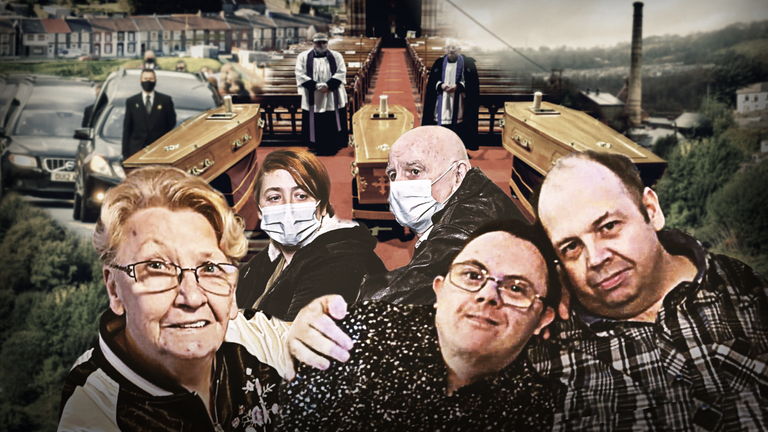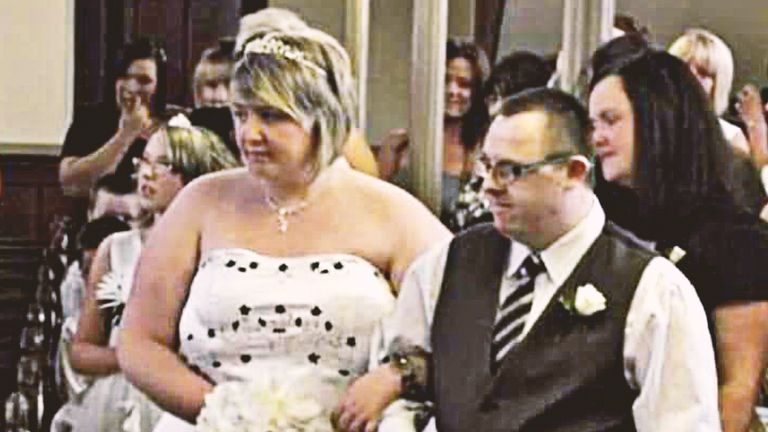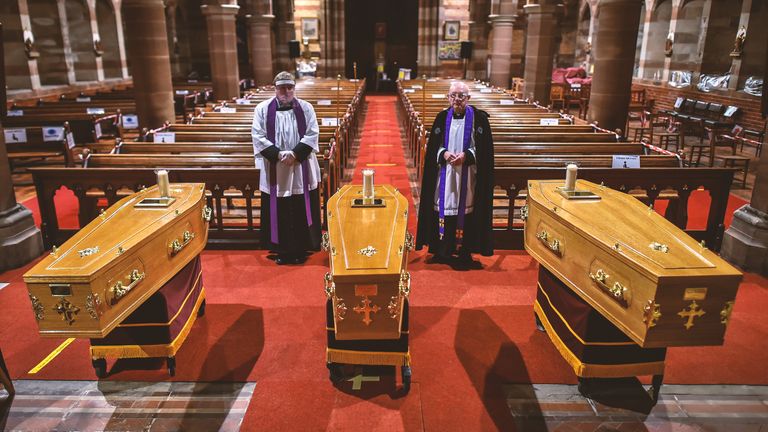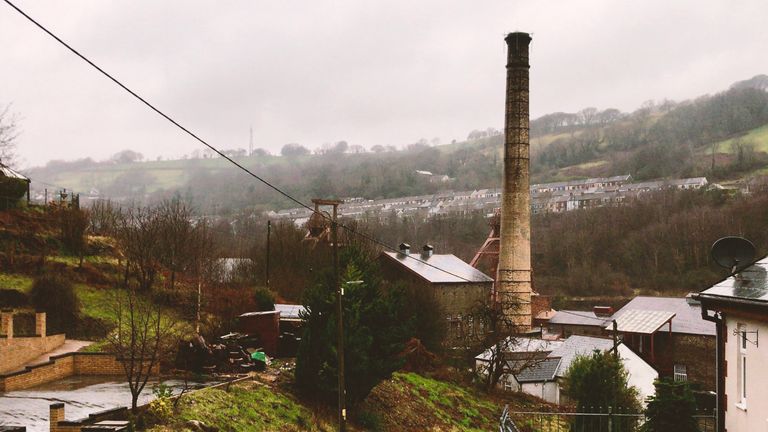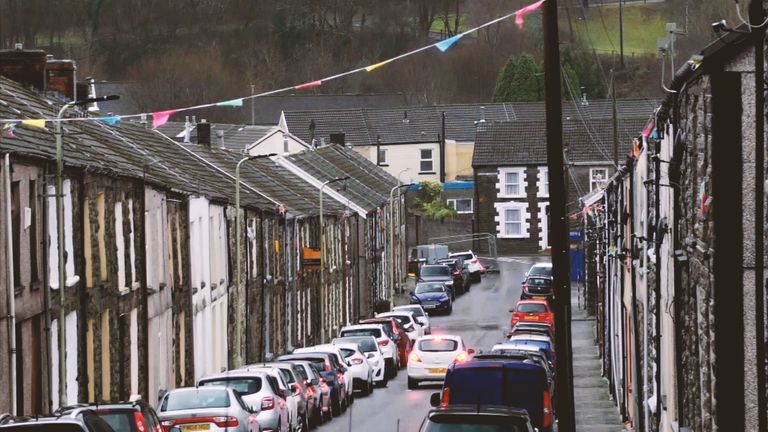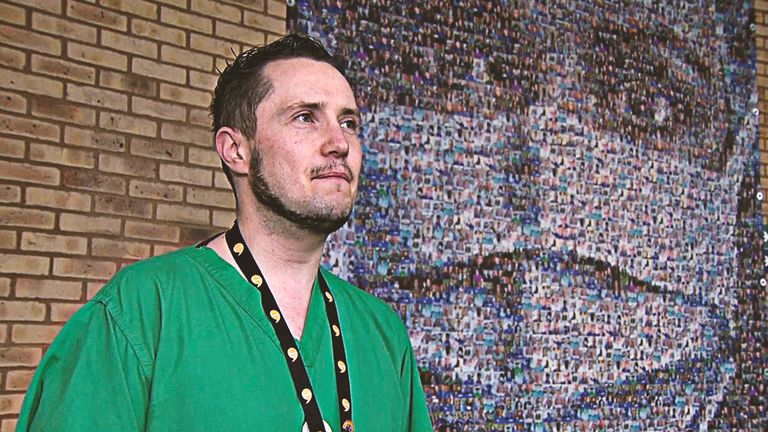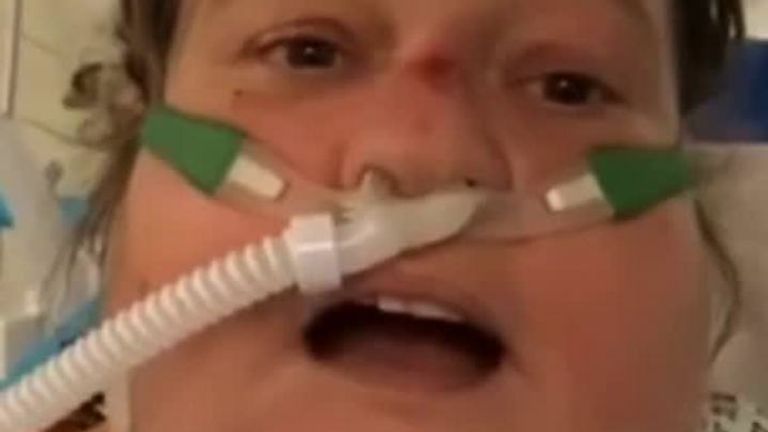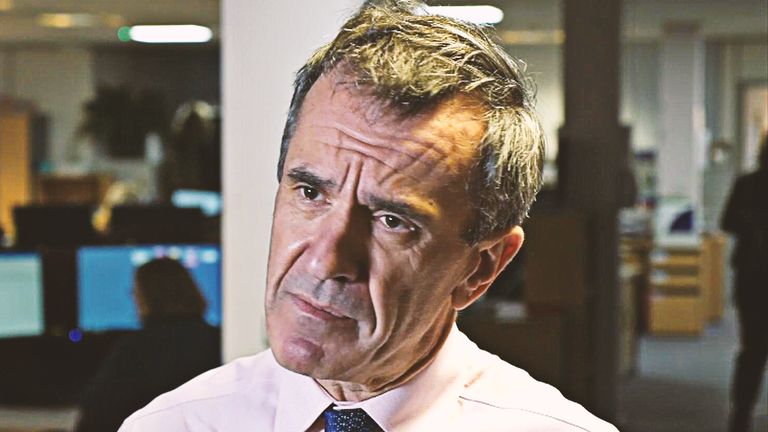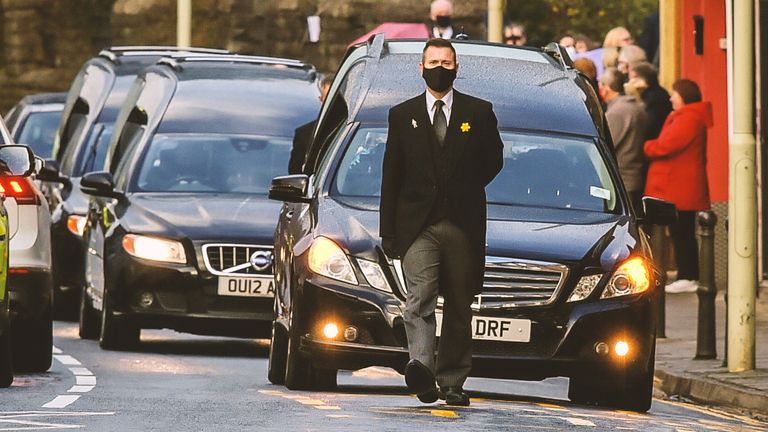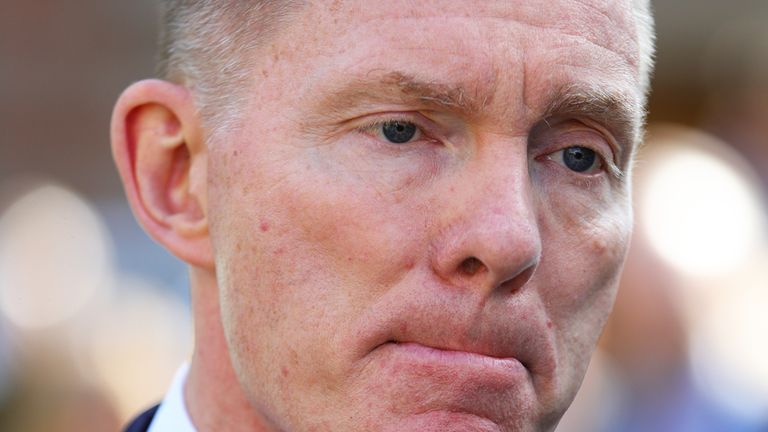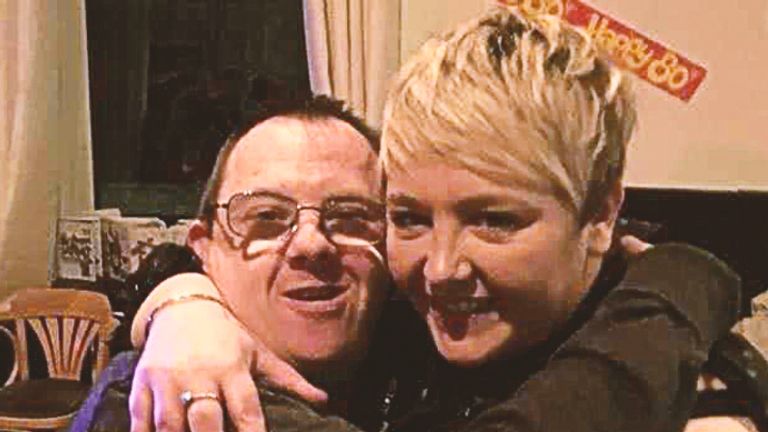COVID-19: Living in the UK’s deadliest place for coronavirus
Debbie Mountjoy couldn’t be with her brother Darren as he lay in intensive care with coronavirus.
Nurses clutched his hand and stroked his head in the final moments of his life.
Debbie had contracted COVID-19 herself and was self-isolating, along with nine other members of her family who had tested positive.
The family has been devastated by coronavirus.
Debbie’s mother Gladys Lewis and her brothers Dean and Darren Lewis all died from the virus within five days last year.
“It’s been horrific,” Debbie says.
“Coming to terms with one loss because of COVID is hard enough. Having to deal with three in such a short space is really, really difficult for all of us.
“We’re terrified… I’m worried all the time that I’m going to lose someone else.”
Darren had Down’s Syndrome and shortly before the 42-year-old died, hospital staff called Debbie so she could speak to her brother who walked her down the aisle on her wedding day.
“The nurses put him on speaker for us so I could tell him that I loved him,” she says.
“Darren was my world, my absolute world.
“Not being able to be there for him was the hardest part.”
Debbie’s father David Lewis, who is mourning the loss of his wife and two sons, also contracted the virus.
“It’s devastating,” he says, fighting back tears.
“I wouldn’t like any family to go through what we’ve been through.”
The family live in the Welsh borough of Rhondda Cynon Taf which has the worst coronavirus death rate in the UK.
With a population of just over 241,000 people, a total of 760 deaths have been recorded with COVID-19 as a cause, up to 15 January. The rate of COVID deaths in the area is around double the UK’s average rate.
The virus – which has now claimed more than 100,000 lives in the UK – has hit the former mining communities in the Welsh valleys hard.
Neighbouring borough Merthyr Tydfil has the UK’s second highest COVID death rate, while nearby Blaenau Gwent is third.
Dr Dai Samuel, a consultant at the Royal Glamorgan Hospital in Rhondda Cynon Taf, says the borough faced a “perfect storm” of high levels of deprivation and health problems in tight-knit communities before the pandemic took hold.
“I think some of our valleys were in dire straits before COVID hit… that’s only been exacerbated a hundred fold,” he says.
“You’ve got very densely populated areas, which are the fallout from the old coalfields.
“You had a significant burden of health (issues) before COVID – high levels of obesity, high levels of cardiovascular disease, diabetes, alcohol excess, substance misuse – all of which play into additional risk if you get COVID.
“And yes, there’s undoubtedly been an aspect, probably, of not everyone following the rules.”
Conspiracy theories claiming COVID-19 is a hoax and that hospitals are lying empty have also circulated in the area, Dr Samuel says.
“In the valleys, there’s a lot of rumours about conspiracies, governments trying to control us and even doctors being complicit with government scandals,” he says.
“A lot of people will buy that and believe what they see on social media and what friends tell them, above and beyond what doctors and politicians tell them.
“I’ve had quite a lot of abuse online for trying to be as honest as I can about what’s going on.
“People just say I’m lying and we’re not working hard. We are certainly are doing that.”
In an effort to combat the mistruths about COVID-19, one patient took matters into her own hands while being treated for the virus in intensive care.
Helen Whatmore shared a video of herself from the Royal Glamorgan Hospital to warn of the dangers of the virus and urge people to “take COVID seriously”.
“It’s absolutely knocked the socks off me and it’s nearly killed me,” she says in the video posted earlier this month.
“The nurses are coming in, all shifts, they’re fighting for your loved ones – from the time they enter, right until the time they leave.
“We are asking them to protect our children and our families – why are we not protecting them ourselves?”
The medical director of the health board which covers Rhondda Cynon Taf admits he did not think in his “worst nightmare” there would be so many COVID-19 deaths.
“Purely in our health board (area), we’ve had over 1,200 deaths which is nothing I ever considered,” Dr Nick Lyons says.
And there is no let up. Dr Lyons says staff are physically and emotionally “exhausted” as they face the second wave of the virus.
“I’ve been a medical director for many years and I’ve never seen a winter like this. This has been the most difficult winter,” he adds.
“I was talking to an ITU (intensive therapy unit) staff member at the end of last week and three people had tragically passed away of COVID on one shift.
“Our staff care for their patients. The emotional toll that it takes is incredible.
“This has been relentless and just continues and, of course, we’re not out of the tunnel yet.
“We’ve seen our ITUs – our intensive care units – busier than they were in the first peak. The number of beds with COVID patients is significantly higher than last time.
“I’ve met relatives of people in their 30s, 40s and 50s, who sadly have died of COVID. Some of them had no previous medical problems at all.”
Rhondda MP Chris Bryant says he can count “several dozen” people he knew who had died with coronavirus.
“Everybody knows everybody here,” he says. “We live on top of each other.
“Oddly one of our strengths as a community – the fact that we all look after one another – may have been one of our weaknesses, because it may mean people have found it more difficult to stick by the rules.”
There are now serious concerns about the legacy of COVID-19 in Rhondda Cynon Taf.
Dr Samuel, who contracted coronavirus himself last year, likened the impact of the virus to when “the coal mines closed in the 80s”.
“I fear there will be another generation of young people in the valleys that will be left behind because of the legacy of COVID,” he says.
“We will not recover from this for years to come.
“The fallout will be immense. The years of life lost will be significant.”
Debbie Mountjoy is still coming to terms with the loss of her mother and two brothers and is desperate for everyone to follow the COVID restrictions to stop the virus spreading.
“I think everybody needs to do more,” she says.
“I don’t think everybody has stuck to (the rules) as religiously as we should have and could have.
“I think people are trying their best but a lot of people are struggling.”
Source: Read Full Article
